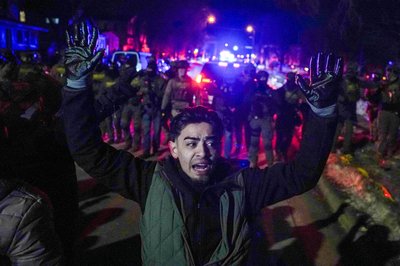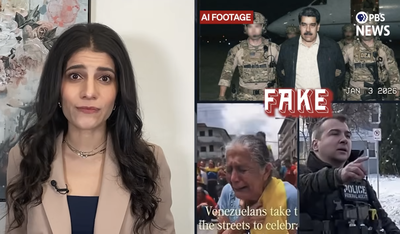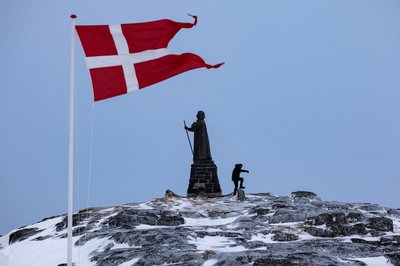UPDATE: Since we published this story, the Jabalia Refugee camp has been hit by Israel for a second time.
Teacher's note: We urgently recommend teachers review all materials before showing to your class — the lead video for this lesson contains extremely violent and disturbing imagery (see timecodes below). This video is recommended for upper high school classrooms.
We understand many educators may pass on teaching this lesson for your students. See our other lessons on the Israel-Hamas war here and see NewsHour’s storieshere.
Summary
For a fifth day, Israel's military pushed into Gaza on the ground and reported its first soldiers killed in action there. From the skies, a punishing air campaign continued with a strike that killed many Palestinians at Jabalia, the largest refugee camp in Gaza.
Hamas militants said they would release foreign hostages in the coming days, and some wounded Palestinians may soon be allowed into Egypt for treatment.
For a transcript, click here.
Time codes
0:30 – 4:40 Leila Molana-Allen reports from Israel (note that extremely graphic images of casualties from the bombing run from 0:57 – 1:32)
4:40 – 12:00 Geoff Benett's studio interview with interview with former Commander of U.S. forces in the Middle East retired General Frank McKenzie, now executive director of the Global and National Security Institute at the University of South Florida
News wrap alternative: Check out recent segments from the NewsHour, and choose the story you’re most interested in watching. You can make a Google doc copy of discussion questions that work for any of the stories here.
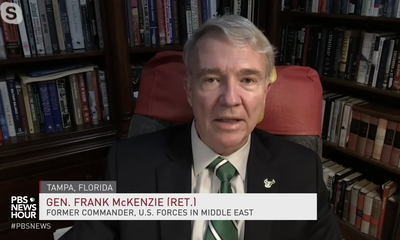
Screenshot of Gen. Frank McKenzie: PBS NewsHour
For an alternative perspective from General McKenzie, you may wish to watch this piece from Democracy Now!: “Genocide”: Top U.N. Official Craig Mokhiber Resigns, Denounces Israeli Assault on Gaza
Warm up questions
- Who are some of the individuals and groups featured in Leila Molana-Allen's portion of the piece?
- What is the perspective of General Frank McKenzie, former Commander of U.S. forces in the Middle East? How do you think his military past and position currently as the head of military-focused think tank affect his viewpoint?
- When was the Palestinian Jabalia refugee camp hit by the Israeli bombs?
- Why do you think McKenzie repeats several times that Israel's strategy is very "methodical"? What do you think his point is in using this phrase? What else do you notice about his comments in the interview?
- How are Israel and the U.S. each addressing the humanitarian crisis and statements by fathers like Modhammed, Gaza Strip resident:
"The people are miserable. There are lines everywhere. Even if you find a drop of water, you will find a line of thousands. You go out in the morning at 7:00 a.m. and you go home after sundown just so you can get two good gallons of water for your home." - How much money is the Biden administration requesting that Congress approve in aid to Israel and Ukraine?
Focus questions
What do you think of the protestors' actions during Secretary of State Antony Blinken's testimony? Why do you think they chose this hearing as a place to protest? What message do you think they were trying to send?
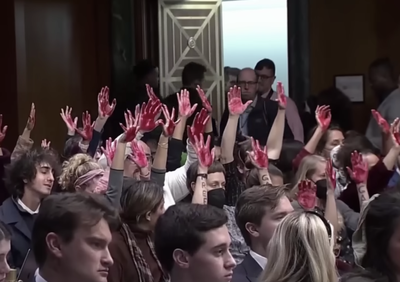
Screenshot of protestors at hearing
Media literacy questions:
- Antony Blinken states, "In each and every one of these conflicts, people are suffering. And I think it's profoundly who we are to want to do everything we can to assist them."
- If you were the journalist interviewing Blinken following this hearing, what questions would you ask him? What actions has the U.S. taken to support humanitarian needs? Read this Reuters piece as a start. Are there any other actions you think it could or should take?
- The title of this 12-minute broadcast segment is "Israeli airstrike hits refugee camp in northern Gaza, killing and wounding civilians." Four minutes covered events in Gaza while eight minutes covered the general's interview without any question about or direct reference to the bombing of the Jabalia refugee camp.
- As a news consumer, you have a big part in how you understand and evaluate the news. What do you make of this time discrepancy? Is the headline misleading? What might you change it to?
Alternative: See, Think, Wonder: What did you notice? What did the story make you think? What story would you want to find out more about? Where would you go to learn more?
For more
What students can do:
Discuss with a friend, family member or classmate how watching the news and reading stories online are affecting you.
Ask: How does the news affect your judgment and understanding of what's taking place in the Israel-Hamas War?
*Are you taking breaks from watching coverage of the war? It's okay to do this, and in fact experts highly recommend it. If not, is it something you would consider? Why or why not?

Creator: Environmental Informatics Marburg
More on media literacy: The debate over who bombed the Al Ahli hospital in Gaza on October 17 ensues. Israel and the U.S. say it was an errant rocket by a militant group from within Gaza; other experts disagree with a clear determination still not being known.
Jabalia, the Palestinian refugee camp that was hit in the story you watched, is the largest in the Gaza Strip. The clip about the bombing had scenes of many of those killed by the Israeli airstrike, and yet the story has not received the same level of news coverage of the Al Ahli hospital bombing. Why do you think this is? Who decides how much coverage a news story gets and why?
Be sure to discuss with a friend or teacher and think about this idea of "lateral reading" — that is reading a few other stories on the same subject but from other news outlets. And remember, it's okay to say I'm going to take a break from the news for a bit.
Fill out this form to share your thoughts on Classroom’s resources. Sign up for NewsHour Classroom’s ready-to-go Daily News Lessons delivered to your inbox each morning.
